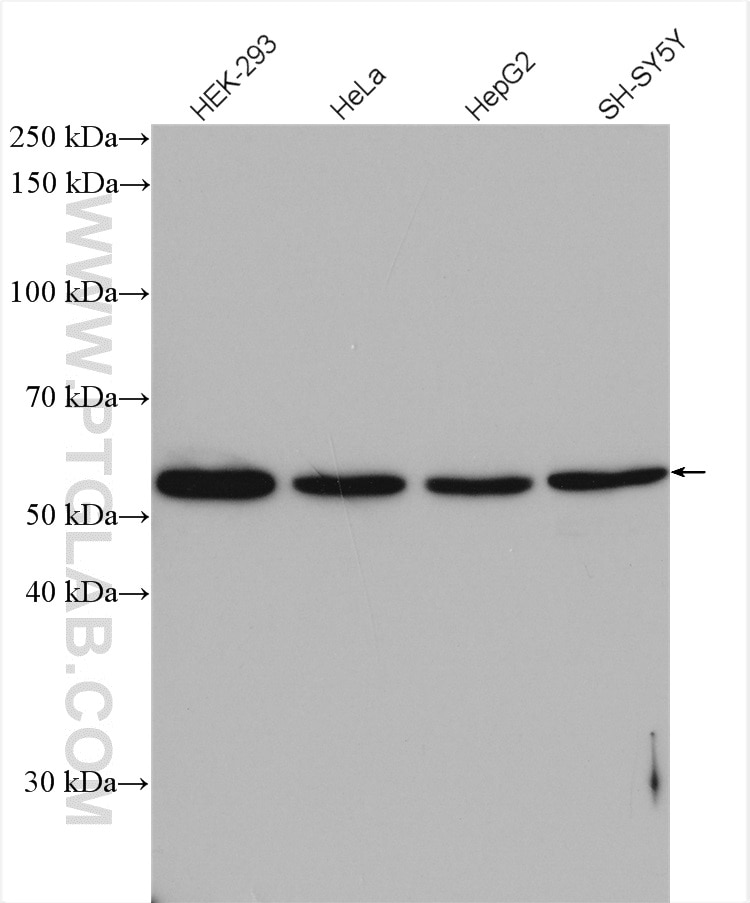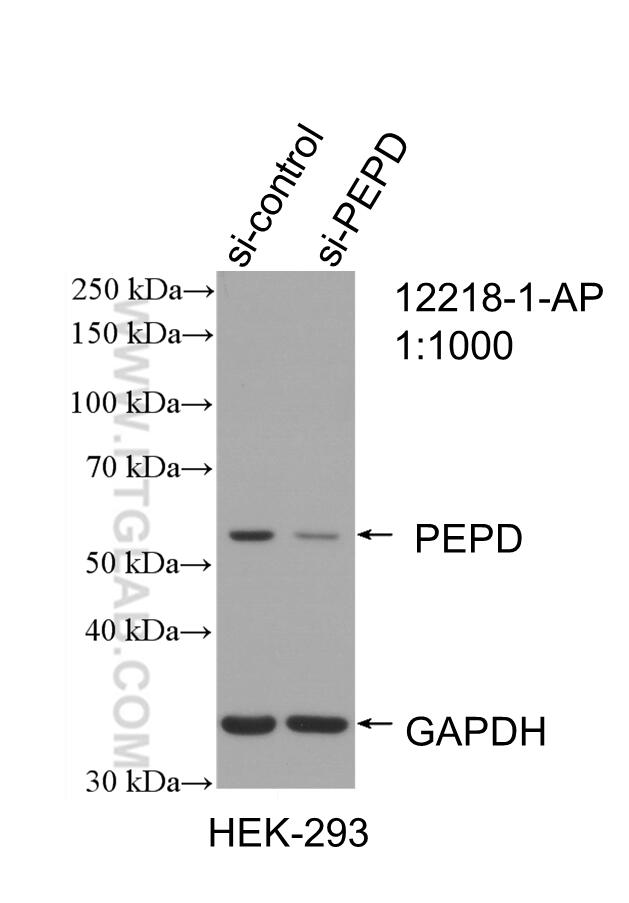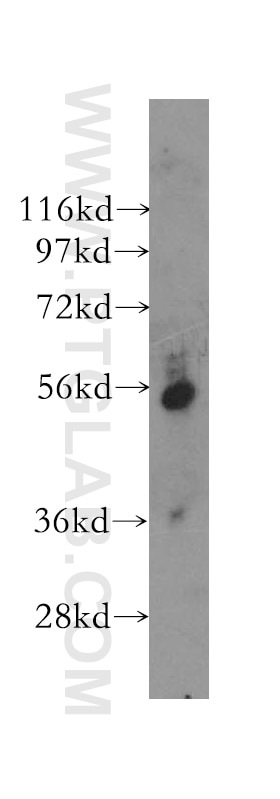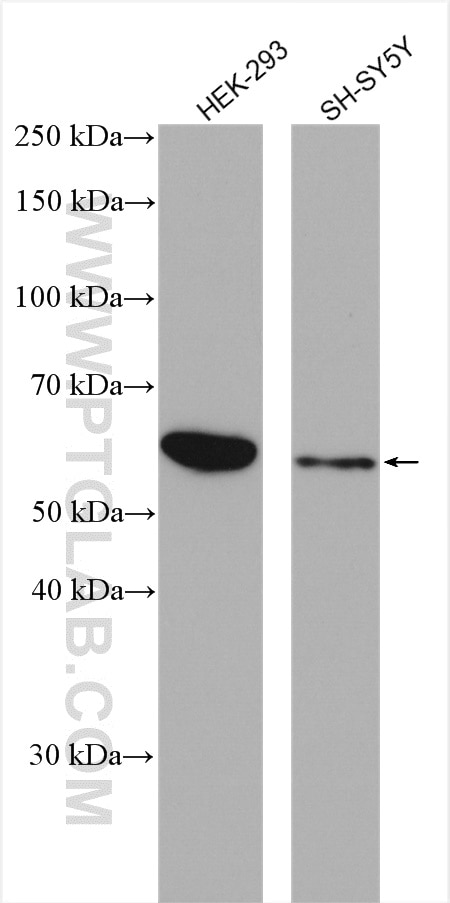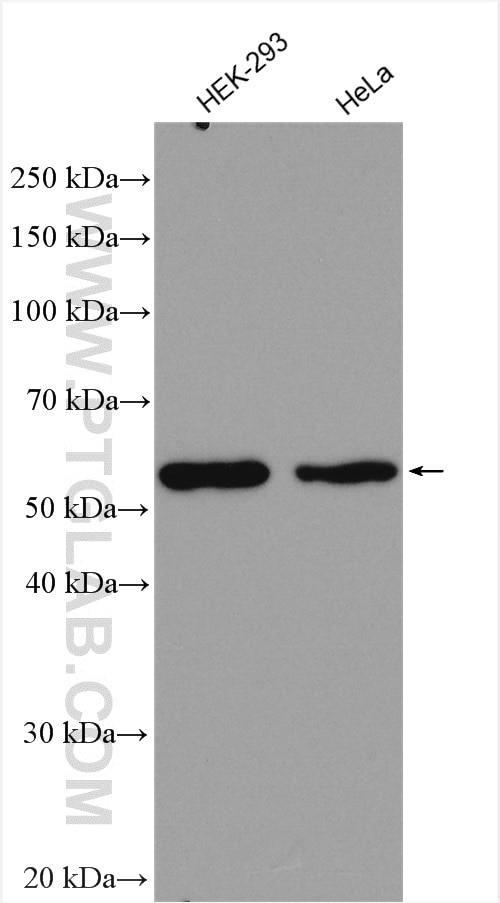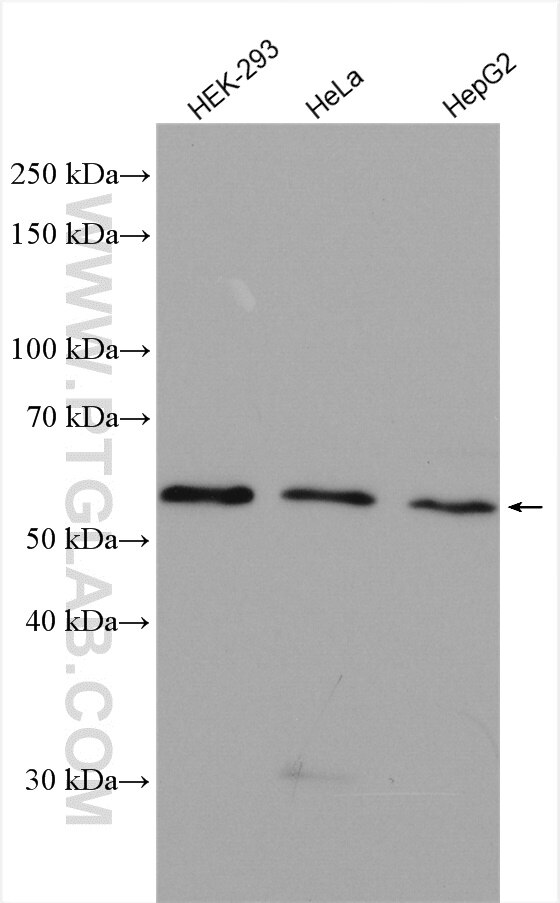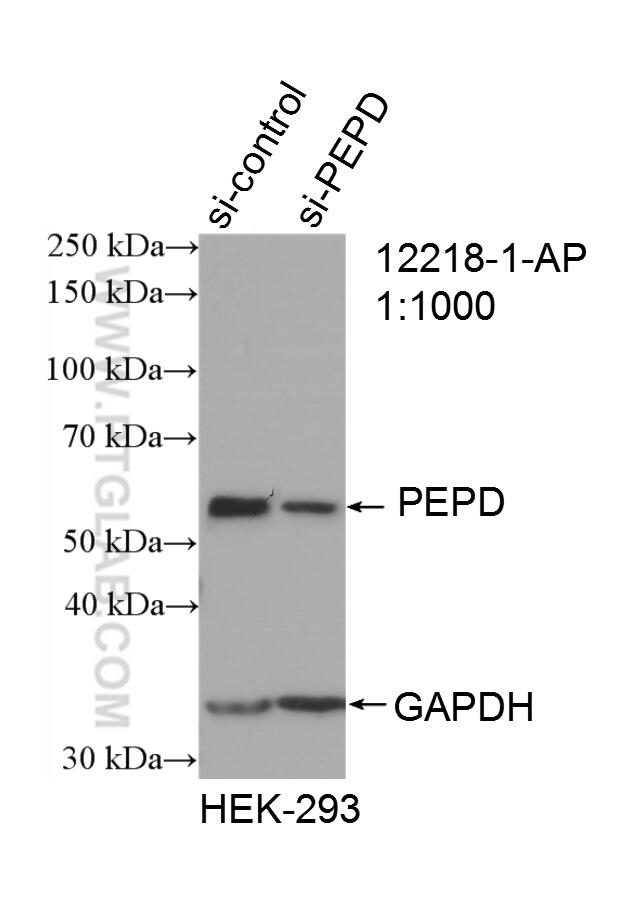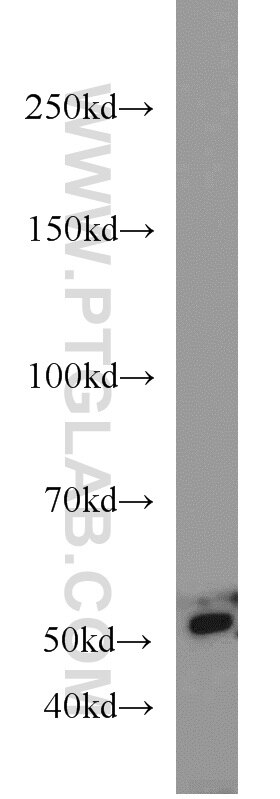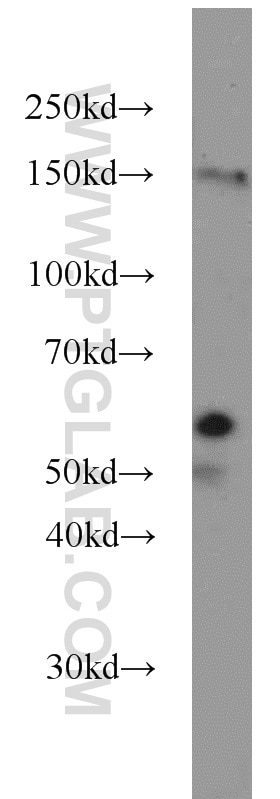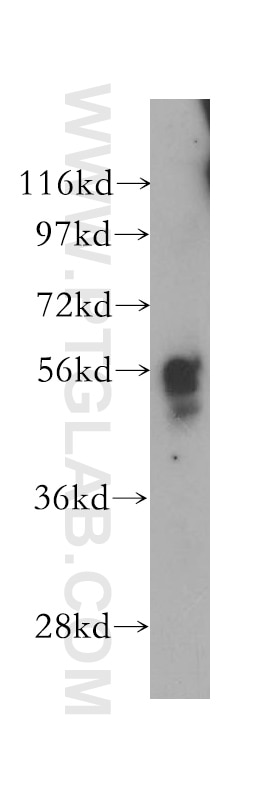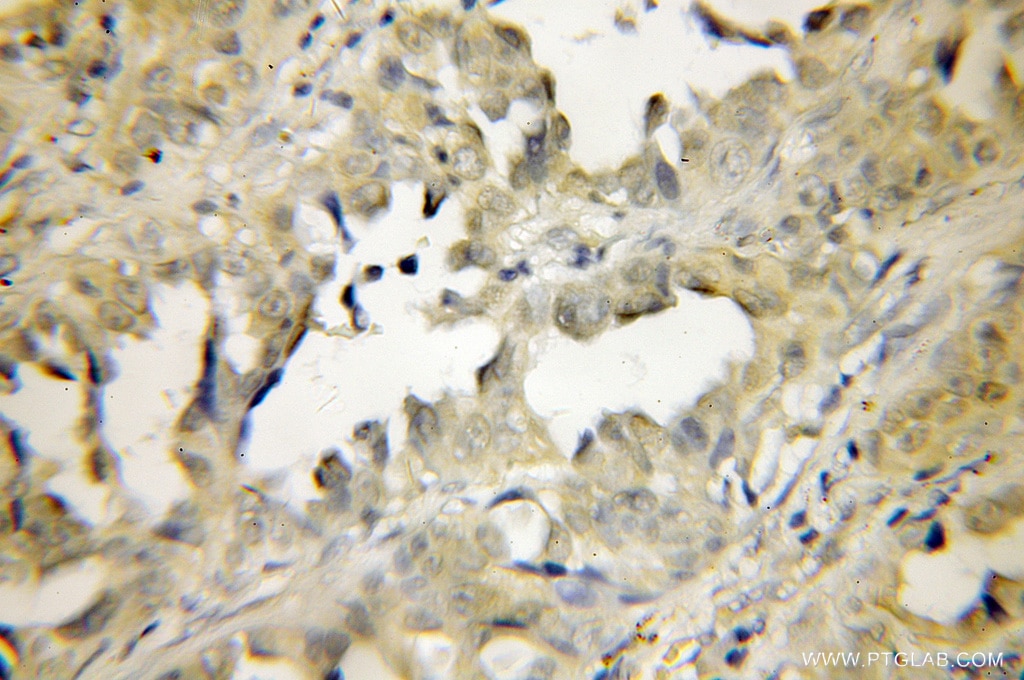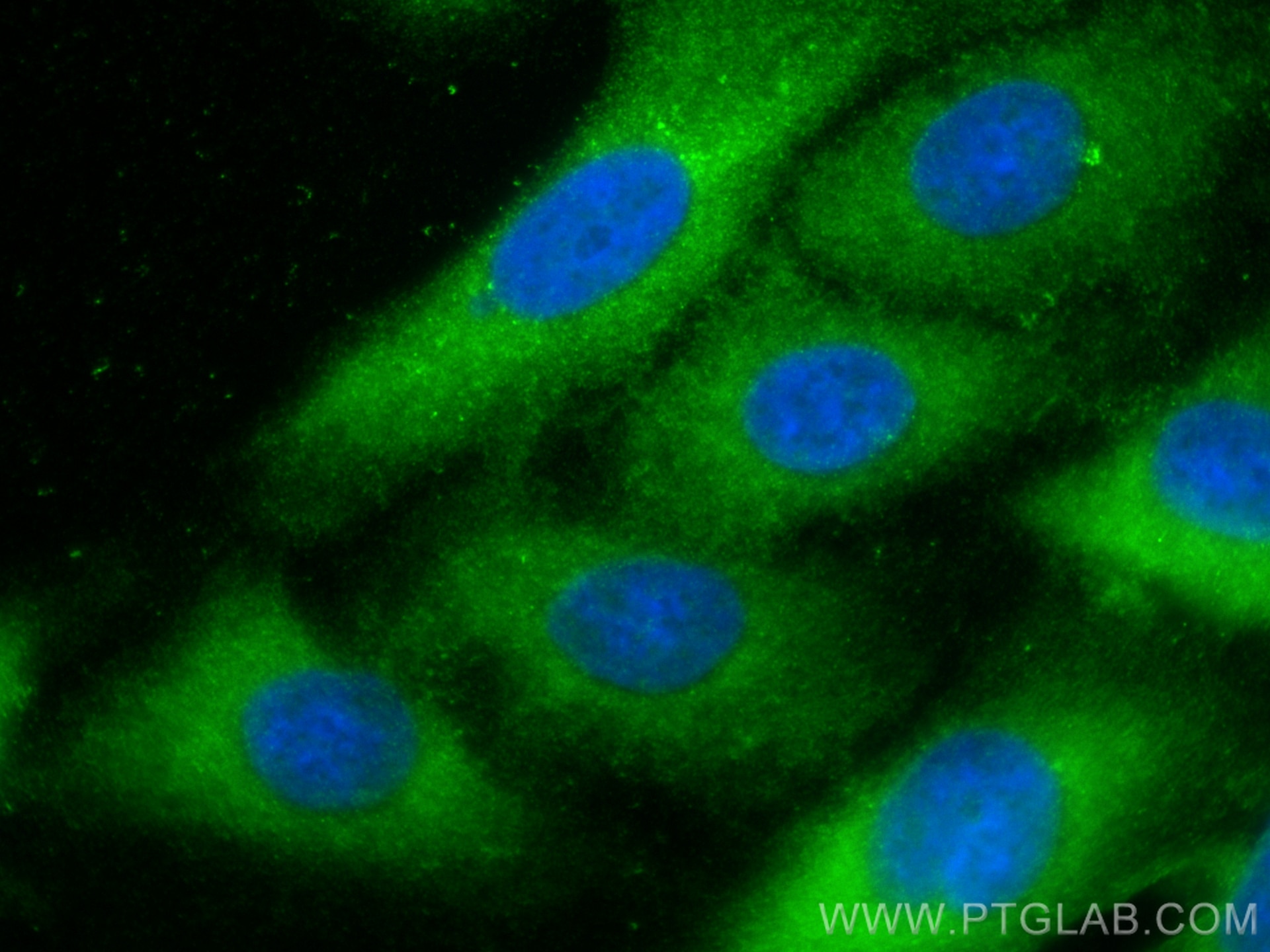- Featured Product
- KD/KO Validated
PEPD Polyklonaler Antikörper
PEPD Polyklonal Antikörper für WB, IHC, IF/ICC, ELISA
Wirt / Isotyp
Kaninchen / IgG
Getestete Reaktivität
human, Maus
Anwendung
WB, IHC, IF/ICC, ELISA
Konjugation
Unkonjugiert
Kat-Nr. : 12218-1-AP
Synonyme
Geprüfte Anwendungen
| Erfolgreiche Detektion in WB | HEK-293-Zellen, HeLa-Zellen, HepG2-Zellen, MDA-MB-453s-Zellen, Maushautgewebe, SH-SY5Y-Zellen |
| Erfolgreiche Detektion in IHC | humanes Lungenkarzinomgewebe Hinweis: Antigendemaskierung mit TE-Puffer pH 9,0 empfohlen. (*) Wahlweise kann die Antigendemaskierung auch mit Citratpuffer pH 6,0 erfolgen. |
| Erfolgreiche Detektion in IF/ICC | A549-Zellen |
Empfohlene Verdünnung
| Anwendung | Verdünnung |
|---|---|
| Western Blot (WB) | WB : 1:500-1:3000 |
| Immunhistochemie (IHC) | IHC : 1:100-1:800 |
| Immunfluoreszenz (IF)/ICC | IF/ICC : 1:200-1:800 |
| It is recommended that this reagent should be titrated in each testing system to obtain optimal results. | |
| Sample-dependent, check data in validation data gallery | |
Veröffentlichte Anwendungen
| WB | See 1 publications below |
| IHC | See 2 publications below |
Produktinformation
12218-1-AP bindet in WB, IHC, IF/ICC, ELISA PEPD und zeigt Reaktivität mit human, Maus
| Getestete Reaktivität | human, Maus |
| In Publikationen genannte Reaktivität | human |
| Wirt / Isotyp | Kaninchen / IgG |
| Klonalität | Polyklonal |
| Typ | Antikörper |
| Immunogen | PEPD fusion protein Ag2842 |
| Vollständiger Name | peptidase D |
| Berechnetes Molekulargewicht | 493 aa, 55 kDa |
| Beobachtetes Molekulargewicht | 55 kDa |
| GenBank-Zugangsnummer | BC015027 |
| Gene symbol | PEPD |
| Gene ID (NCBI) | 5184 |
| Konjugation | Unkonjugiert |
| Form | Liquid |
| Reinigungsmethode | Antigen-Affinitätsreinigung |
| Lagerungspuffer | PBS with 0.02% sodium azide and 50% glycerol |
| Lagerungsbedingungen | Bei -20°C lagern. Nach dem Versand ein Jahr lang stabil Aliquotieren ist bei -20oC Lagerung nicht notwendig. 20ul Größen enthalten 0,1% BSA. |
Hintergrundinformationen
PEPD, also named as PRD, Prolidase, X-Pro dipeptidase, Imidodipeptidase, Peptidase D and Proline dipeptidase, belongs to the peptidase M24B family and Eukaryotic-type prolidase subfamily. PEPD splits dipeptides with a prolyl or hydroxyprolyl residue in the C-terminal position. It plays an important role in collagen metabolism because the high level of iminoacids in collagen. Defects in PEPD are a cause of prolidase deficiency (PD). PEPD is considered as the most promising candidate genes for altering AAA risk, based on gene function, association evidence, gene expression, and protein expression.(PMID:21247474)
Protokolle
| PRODUKTSPEZIFISCHE PROTOKOLLE | |
|---|---|
| WB protocol for PEPD antibody 12218-1-AP | Protokoll herunterladen |
| IHC protocol for PEPD antibody 12218-1-AP | Protokoll herunterladenl |
| IF protocol for PEPD antibody 12218-1-AP | Protokoll herunterladen |
| STANDARD-PROTOKOLLE | |
|---|---|
| Klicken Sie hier, um unsere Standardprotokolle anzuzeigen |
Publikationen
| Species | Application | Title |
|---|---|---|
BMC Med Genet Analysis of positional candidate genes in the AAA1 susceptibility locus for abdominal aortic aneurysms on chromosome 19. | ||
Arch Med Res Relationship Between Echocardiographically Evaluated Aortic Stiffness and Prolidase Activity in Aortic Tissue of Patients with Critical Coronary Artery Disease. | ||
Nat Commun Parental experiences orchestrate locust egg hatching synchrony by regulating nuclear export of precursor miRNA |
